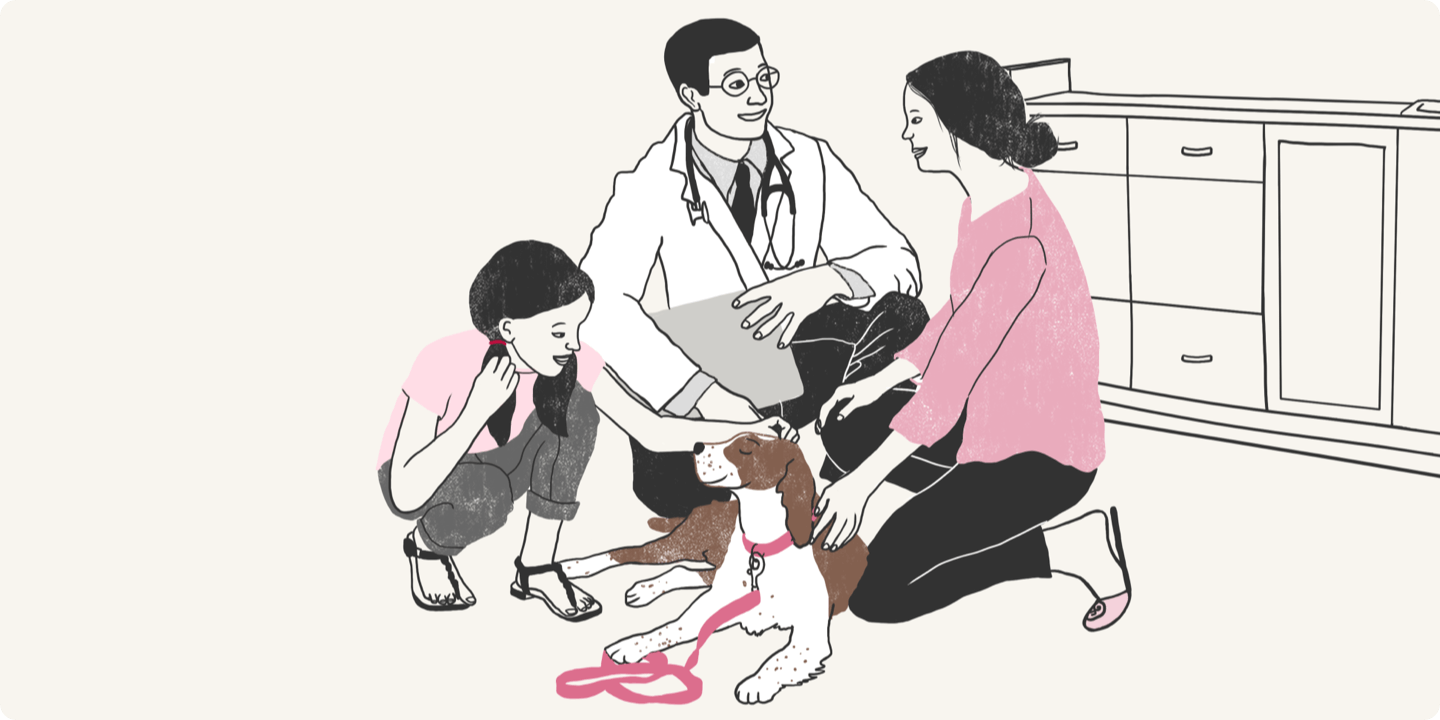Allergic itch affects many dogs and can present itself in ways other than scratching (like licking, chewing, rubbing, or scooting). The aim of treatment is to provide fast, effective, and safe relief for your dog.

The most important things you can do is work with your veterinarian to find the cause of your dog’s itch. Your dog’s itch can be caused by things like fleas, mites, and bacterial or yeast infections. One of the most common causes of itching is allergies to dust mites, molds, pollens and foods or less commonly to carpets, wool, or plants. Finding the cause of the itch gives both you and your pet the best chance of successful long-term control of itching.
In the past, allergic itch was treated with antihistamines which were largely ineffective for most dogs, or with corticosteroids (prednisolone/prednisone) which worked but had undesirable side effects1.
Side Effects of Corticosteroids in Dogs
Corticosteroids are naturally produced in dogs by their adrenal gland. They help the bodily functions like metabolism and the immune system. As previously mentioned, a low dose can be used to help with skin issues (and other health ailments), but come with side effects that might make pet owners think twice before using corticosteroids for dogs.
- Excessive urination.
33% of dogs treated by steroids have to go to the bathroom more often2, meaning more late-night potty trips and accidental urination for an otherwise potty-trained dog. - Increased thirst.
45% of dogs experience an insatiable thirst as a side effect from steroids2, meaning you’ll be filling up that water bowl over and over. Some dogs even result to drinking out of the toilet bowl to satisfy their need for water. - Increased hunger.
Not only can increased hunger cause weight gain3(which can lead to orthopedic problems), but it can cause your dog to steal food (including from the trashcan), and even nip children trying to take food out of their hands4. - Heightened stress and anxiety.
Steroids have the potential to increase anxiety-related behaviors, like a lack of obedience, increased panting, barking more often, and being restless, nervous, or fearful4.
Are Corticosteroids Right for Your Dog?
Dogs, pet parents, and corticosteroids don’t always get along. Dog owners spend an average of 5 hours per week dealing with the side effects of dogs on steroids2. These side effects can put a strain on the special bond you share with your dog. Ask your veterinarian about alternative, targeted allergic itch treatments for your dog’s itchy skin that can give you and your dog a positive experience. Given the side effects of corticosteroids in dogs, consider if this treatment is right for you and your pet.
ZPC-00448R2
- Olivry et al. Treatment of canine atopic dermatitis: 2015 updated guidelines from the international committee on allergic diseases of animals. (ICADA). BMC Veterinary Research 2015;11:210.
- Data on file, Pet Owner Quantitative Market Research, 2013, Zoetis Inc.
- Sousa CA. Glucocosteroids in veterinary dermatology. In: Bonagura JD, Twedt DC, eds. Kirk’s Current Veterinary Therapy. 14th ed. St. Louis, MO: Saunders Elsevier; 2009:400-404.
- Notari L, Burman O, Mills D. Behavioural changes in dogs treated with corticosteroids. Physiol Behav. 2015;151:609-616. doi:10.1016/j.physbeh.2015.08.041.



